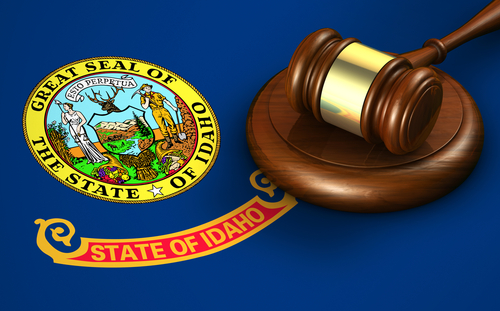Supreme Court once again 'leapfrogging' appeals court in decision to hear Idaho emergency abortion case

The U.S. Supreme Court on Friday agreed to decide whether Idaho’s near-total abortion ban conflicts with a federal law requiring stabilizing emergency care. Image from Shutterstock.
For 15 years, the U.S. Supreme Court did not grant a single petition for certiorari before judgment, which asks the high court hear a case before a federal appeals court weighs in.
That changed in 2019, according to Steve Vladeck, a professor at the University of Texas School of Law, writing at his One First newsletter. Since then, the Supreme Court has agreed to hear such cases 21 times, effectively “leapfrogging the court of appeals.”
The latest example: The Supreme Court on Friday agreed to decide whether Idaho’s near-total abortion ban conflicts with a federal law requiring stabilizing emergency care. The law, the Emergency Medical Treatment and Active Labor Act, is known as EMTALA in shortened form.
The state of Idaho and the speaker of the Idaho House of Representatives had asked the Supreme Court to allow the full law take effect. The court granted those requests and then converted them into petitions for certiorari before judgment and granted them both. It was the 20th and 21st times that the court has granted a petition for certiorari before judgment since February 2019, according to Vladeck.
Other publications with coverage include the Washington Post, SCOTUSblog, Law360 and the New York Times.
EMTALA requires necessary stabilizing treatment for an emergency medical condition regardless of a patient’s ability to pay. The law defines an emergency medical condition as a condition that, without medical treatment, could reasonably be expected to result in serious impairment to bodily functions, serious dysfunction to any bodily organ, or serious jeopardy to the health of the patient (or in the case of a pregnant person, the health of the person or their unborn child).
Guidance issued by the Biden administration states that a physician must perform an abortion if a pregnant patient has an emergency condition as defined by EMTALA, and abortion is the necessary stabilizing treatment.
Idaho’s abortion ban creates an exception that allows abortions to prevent the death of a pregnant person, based on a physician’s good-faith medical judgment.
According to Vladeck’s analysis in a separate One First post, “EMTALA’s text certainly appears to require stabilization of ‘emergency medical conditions’ even in at least some cases where those conditions are, objectively, not (yet) life-threatening.”
The U.S. Department of Justice had filed a lawsuit in August 2022 claiming that the Idaho abortion law is preempted by EMTALA in situations in which an abortion is a necessary stabilizing treatment. That same month, Senior U.S. District Judge B. Lynn Winmill of the District of Idaho blocked Idaho from enforcing its abortion ban in emergency situations covered by EMTALA.
The en banc 9th U.S. Circuit Court of Appeals based at San Francisco upheld the injunction pending appeal in late 2023, according to Law360.
The conflict between EMTALA and state abortion law also arose in a Texas case. The 5th Circuit at New Orleans ruled for Texas in a Jan. 2 opinion, holding that the guidance “exceeds the statutory language” and “goes beyond EMTALA by mandating abortion.”
The Idaho cases are Moyle v. United States and Idaho v. United States.
Write a letter to the editor, share a story tip or update, or report an error.



